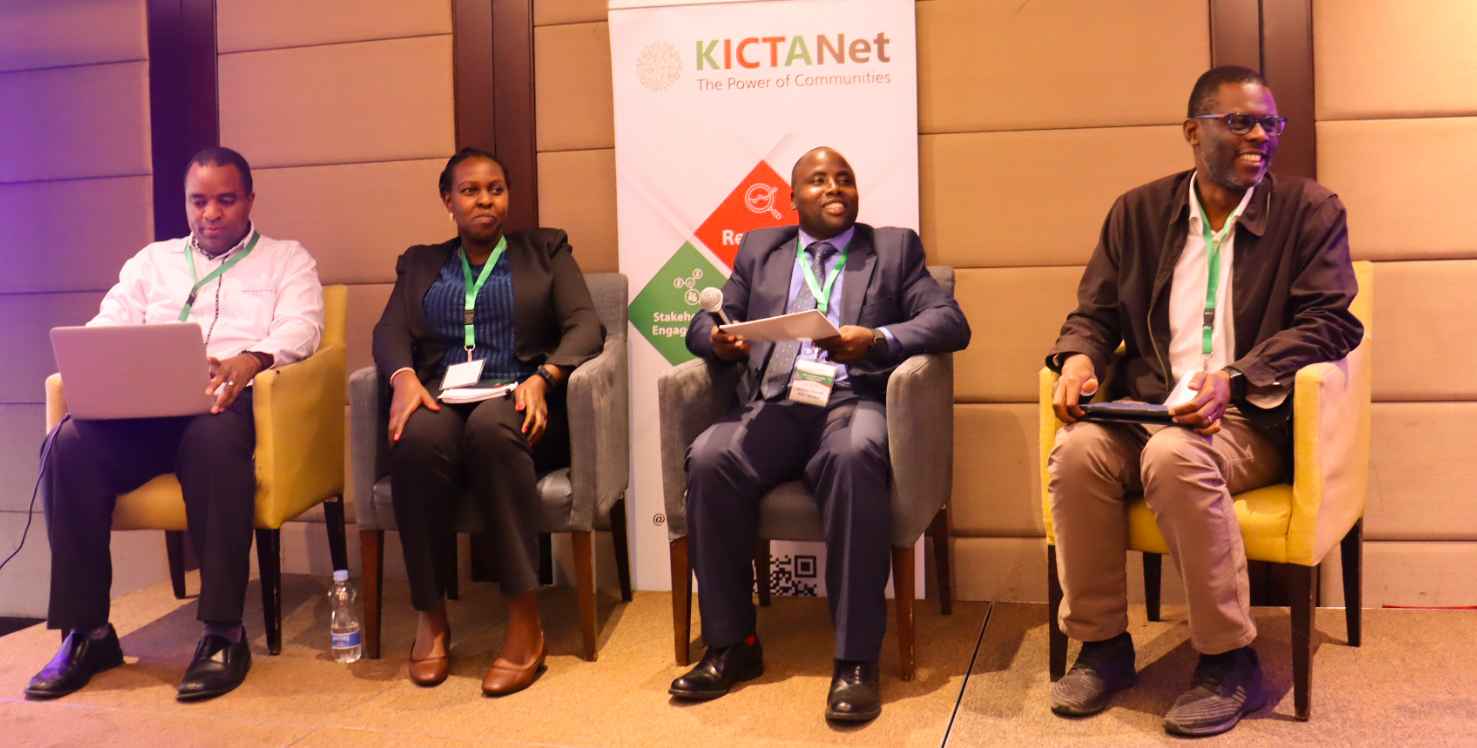By Linda Gichohi
Kenya’s rapidly growing digital economy presents both challenges and opportunities for taxation. To address this, KICTANet hosted a roundtable, “Policy Discussion on Digital Taxation in Kenya,” bringing together policymakers, tax experts, and industry representatives.
Kenya’s digital economy is thriving, and so is the conversation around digital taxation. #DigitalTaxationKE https://t.co/ZSXCcnOKvk
— KICTANet (@KICTANet) May 28, 2024
The Need for Adaptation
As the digital economy grows, traditional tax frameworks need adjustments. Kenya introduced the Digital Service Tax (DST) in 2020, generating significant revenue estimated at $37.5 million (KES 5.328 billion in 2023).
However, concerns have arisen. This includes compliance, tax base erosion, implementation, economic impact, data protection, and enforcement, necessitating a balanced approach that fosters business growth while ensuring fair digital taxation.
Key Discussion Points
A panel discussion on ‘Taxation: Challenges and Opportunities in the Digital Age’, with Nickson Omondi, Kenya Revenue Authority (KRA),
Mercy Kimalat, Association of Startup and SME Enablers of Kenya (ASSEK), John Walubengo, Multimedia University (MMU) and Martin Mbaya, Strathmore University explored areas of compliance, enforcement, bridging the digital divide and supporting businesses and simplifying taxation.
Omondi explored strategies for ensuring compliance with digital tax laws. Kimalat questioned whether the Finance Bill 2024 provides adequate incentives for local digital businesses, especially considering the potential cost increases.
On the simplification of taxation, Mr Walubengo proposed measures to simplify digital tax regulations, promoting digital economy growth.
Balancing Interests
Sarah Muyonga, a Public Policy Director for East &Horn of Africa with technology company Meta Inc. advocated for a global approach to digital taxation due to the interconnectedness of the digital space.
She highlighted the potential impact of digital taxes on small and medium enterprises (SMEs) and the need for a thoughtful approach that considers job creation and economic growth.
Dr. Peter Mwencha raised concerns regarding the proposed Significant Economic Presence Tax (SEPT) and withholding tax. He emphasized the need for clear policy guidelines, stakeholder participation, and balancing revenue generation with fostering growth within the digital sector.
Walubengo stressed the importance of predictable tax policies and user-friendly tax platforms like iTAX to encourage investment and business growth.
Balancing Revenue and Innovation
The meeting proposed establishing a clear legal framework for digital activities is crucial for responsible taxation and value creation.
In addition, it highlighted the need to avoid double taxation as Kenya broadens its tax base.
Lawrence Mungai, Manager – Corporate Tax at PwC Kenya emphasized the need for Kenya to balance local needs with international standards in its digital tax policies.
Fredrick Ogutu, Bowmans Law discussed key considerations for deploying digital taxes, focusing on overcoming obstacles without hindering innovation. There was an emphasis on integrating digital service taxes to diversify revenue streams while minimizing impacts on business growth and consumer costs.
Ms Ngina Mutava from the Strathmore University Tax Research Centre highlighted challenges such as determining the jurisdiction of value creation and preventing base erosion while ensuring compliance with international tax standards.
Discussions focused on overcoming challenges such as taxing non-resident companies, fostering innovation despite revenue generation, and ensuring stakeholder inclusivity. Proposed solutions included clear policy guidelines, stakeholder engagement, and simplified tax structures to minimize burdens on businesses and consumers.
RELATED
Moving Forward
Kenya is implementing SEPT to replace DST, expanding the definition of digital marketplaces and imposing withholding tax.
Panelists emphasized the importance of ongoing dialogue to ensure a balanced approach that promotes compliance while minimizing burdens on consumers and businesses.
The #DigitalTaxationKe, stakeholders’ forum was informative.
We need to do more in our communities to bring the contents of this debate home & make it a household discourse. @KICTANet network was instrumental in sharing progressive submissions to Parliament, on this bill. pic.twitter.com/TNz90S0E8p
— Beatrice Waithera Wanjirû Maina _ Munjiru 🇰🇪🌸 (@BettieWaShiro) May 29, 2024
KICTANet emphasized the importance of collaborative policymaking to navigate the complexities of the digital economy. By addressing challenges and leveraging opportunities, Kenya can develop an effective digital tax framework for growth, compliance, and equitable development.
KICTANet submitted a memorandum on the Finance Bill 2024, reflecting their commitment to positive ICT policy reforms.
RELATED
Linda Gichohi is a lawyer, a KICTANet Legal Fellow, and a Gender Program Assistant. She has an interest in women’s digital rights and access to justice for technology-facilitated violence.
![]()




